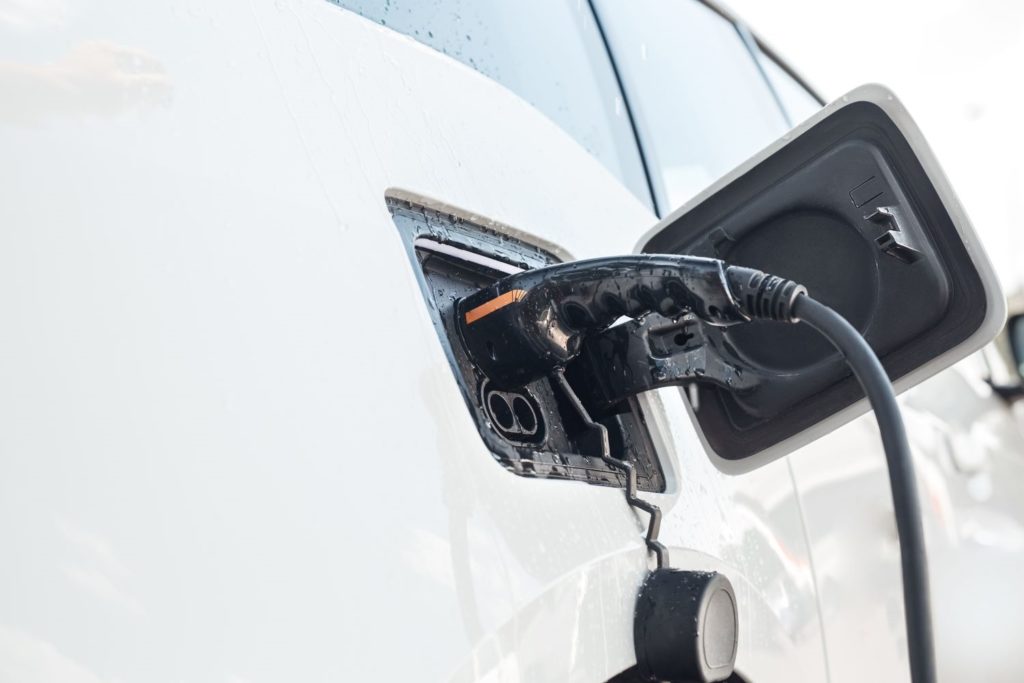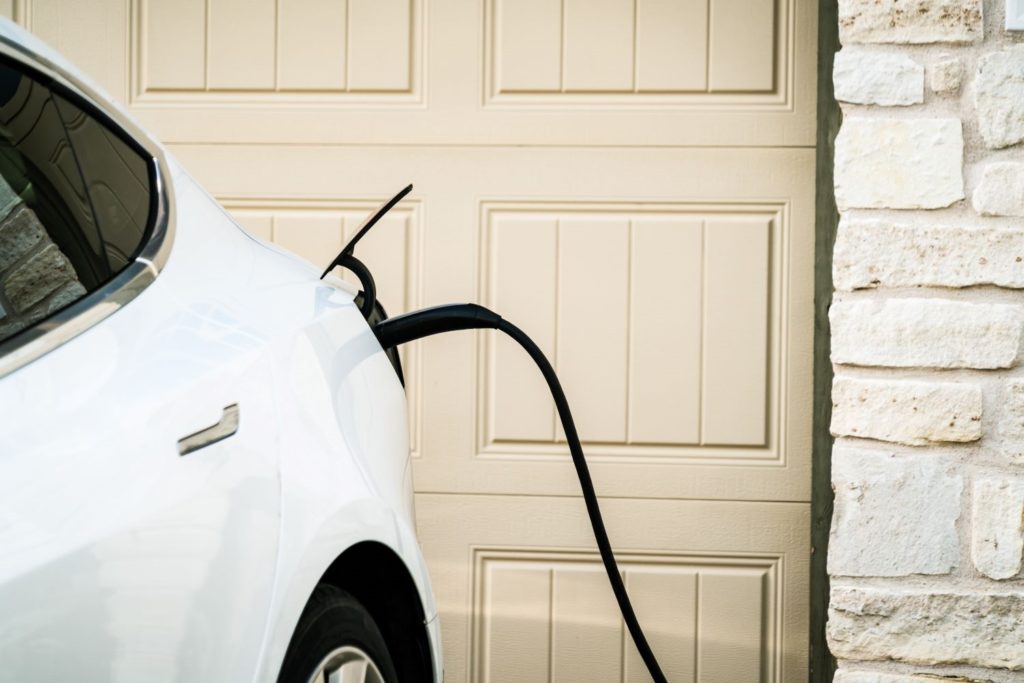Many EV charging stations and Tesla superchargers are located outdoors. Given that there’s a huge amount of energy being transferred from the charger to the vehicle’s batteries, should EV drivers be concerned about their safety when the vehicle outlets and charging plugs get wet?
Can You Get Electric Vehicle Plugs and Outlets Wet?
Yes, you can. The charging cable is designed to make a watertight fit at the vehicle’s charging port. It’s perfectly normal for EVs to be left charging outdoors while there’s rain or snow. In fact, there are EV owners who leave their cars charging outside on a consistent basis, including the days when it’s pouring rain or snowing. While we know mixing electricity and water is known to result in short circuits and fires, EVs have been designed to prevent any issues from arising even when they get wet. That said, you should refrain from charging your EV when there are natural calamities like hurricanes, floods, or blizzards.
While there have been reports of EVs catching fire while charging, these occurrences are typically a result of manufacturing flaws, software issues, or damage from a crash.

EV Charging Safety Standards
EV manufacturers are mandated by federal law to ensure EVs meet consumer safety requirements. EV charging equipment is tested by the Society of Automotive Engineers to work in almost any weather condition. The National Highway Traffic Safety Administration (NHTSA) also has Federal Motor Safety standards that manufacturers have to follow to prevent consumers from being electrocuted.

EVs and charging stations also have a safety layer that prevents them from immediately charging when you connect the plug to the EV port. Unlike in a typical household appliance where electricity immediately flows once plugged, EVs need to communicate with the charging cable first, ensuring that the connection is secure and safe before charging can begin.
EV Charging Safety Tips
EVs and their chargers have plenty of safeguards in place to allay any safety concerns. Despite being safe to use in several weather conditions, remember that there are still some guidelines you should follow whenever you’re charging your EV to prevent any safety hazards.
- Each EV manufacturer has a set of instructions on how to charge its vehicles. Read the manual and make sure you follow them.
- You should never try to use a charging point that isn’t compatible with your car.
- Maintain the components of your charger in accordance with the manufacturer’s instructions. Excessive wear could indicate a potential shock hazard. Never use an EV charger that has visible signs of damage.
- Make sure a qualified, registered, and competent electrician installs your dedicated wall box charging port at home.
- Make sure the wiring at your home has been checked to ensure that it can handle the load of charging your vehicle over long periods of time.
- Install a residual current device in conjunction with the charging unit. If a fault is detected, this device will turn off the power to help prevent a fire.
- When not in use, keep all charging device components out of reach of children.
- Always purchase your charging cable from a reputable shop or straight from the manufacturer, who will subject such devices to stringent testing to verify they satisfy US safety regulations.
- When charging your electric vehicle, never use a domestic multi-socket extension cord. If you must use an extension cord, be sure it is suited for outside use, such as a reel cable.

Given how EVs are being adopted swiftly, sometimes there isn’t enough EV infrastructure to meet the demands of an area or community. Despite the lack of infrastructure, EV owners should still try the charge at reputable charging ports and refrain from using chargers that fail to meet the guidelines mentioned above.
Where to Get Replacement Parts for Your EV
If you want your EV to last, you’ll have to replace any faulty parts before they cause issues. When some components wear out or fail, it can cause other parts to get damaged, which can lead to a more expensive repair bill. It’s a good thing that finding the right EV parts is quick and easy here at CarParts.com.
CarParts.com offers a wide range of EV parts including headlights, brake components, and mirrors. We have a vehicle and search filter that allows you to browse through parts that are compatible with your ride. If you’re eager to get your vehicle repaired, you’ll be pleased to know that CarParts.com also guarantees fast shipping. Our strategically located warehouses allow couriers to ship your package in as fast as two business days.
Don’t let your EV sit around with faulty components. Get the right parts and accessories for your EV here at CarParts.com!
Any information provided on this Website is for informational purposes only and is not intended to replace consultation with a professional mechanic. The accuracy and timeliness of the information may change from the time of publication.



















